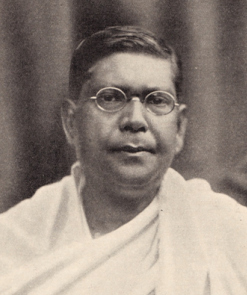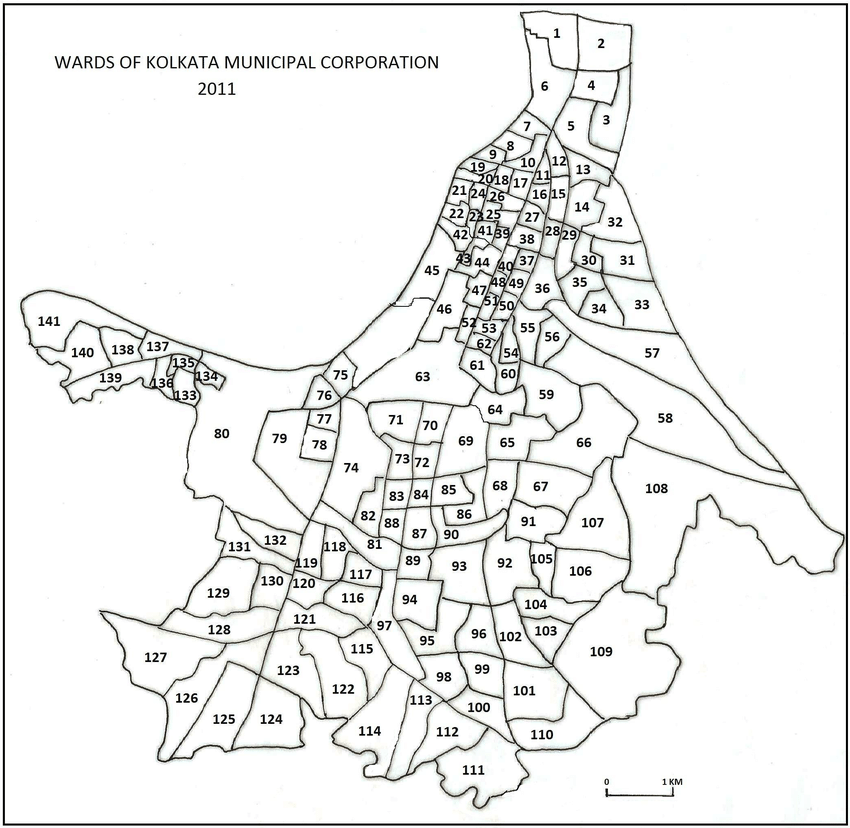|
List Of Mayors Of Kolkata
The Mayor of Kolkata is the chief executive of the Kolkata Municipal Corporation, one of the civic authorities in the Indian city of Kolkata. He is the ''First Citizen'' of the city of Kolkata. There have been 38 mayors of Kolkata in total till now since first election in 1924. History The first Kolkata Municipal Election was held on 16 April 1924, during the time of British India, under the ''Calcutta Municipal Act, 1923 - Bengal Act III of 1923''. Mayors were elected on an annual basis. No corporation elections were held, therefore there was no mayor, from 1948 to 1952. In 1952 further mayors were appointed on an annual basis under the ''Calcutta Municipal Act, West Bengal Act XXXIII of 1951''. There was another break in mayoral elections from 1972 to 1985, after which mayors were elected on a five year term under the ''Calcutta Municipal Corporation Act, 1980 West Bengal Act LIX of 1980''. List of mayors References {{reflist , refs= {{cite web , title=Mayors of Kolkata , ... [...More Info...] [...Related Items...] OR: [Wikipedia] [Google] [Baidu] |
Kolkata Municipal Corporation
Kolkata Municipal Corporation (abbreviated KMC; also Calcutta Municipal Corporation) is the local government of the Indian city of Kolkata, the state capital of West Bengal. This civic administrative body administers an area of . Its motto, ''Purosri Bibardhan'', is inscribed on its emblem in Bengali script. Geography The Kolkata Municipal Corporation is located at in Kolkata, West Bengal. Department Structure Kolkata Municipal Corporation was established in 1876. Under the guidance of the first Minister of Local Self-Government in Bengal, Sir Surendranath Banerjee, the Calcutta Municipal Act of 1923 made provision for the enfranchisement of women and the election of a Mayor of Kolkata annually. Deshbandhu Chittaranjan Das was the first Mayor of Kolkata Municipal Corporation with Subhas Chandra Bose as his Chief Executive Officer. Later mayors include Deshapriya Jatindra Mohan Sengupta, Subhas Chandra Bose, Bidhan Chandra Roy, Nalini Ranjan Sarkar, Abul Kasem Fazlul H ... [...More Info...] [...Related Items...] OR: [Wikipedia] [Google] [Baidu] |
Nalini Ranjan Sarkar
Nalini Ranjan Sarkar () (1882–25 January 1953) was an Indian businessman, industrialist, economist, and public leader. He was greatly involved in the political and economic regeneration of Bengal. Sarkar was Finance Minister of West Bengal in 1948. The Sarkar Committee Report was instrumental in the subsequent establishment of the four Indian Institutes of Technology (IITs) by the Government of India. Early life, education and joining politics Nalini Ranjan Sarkar was born in a middle class Kayastha family from Kendua of greater Mymensingh district (now Netrokona District, Bangladesh), British India. After passing the Entrance Examination from the Pogose School, Dhaka in 1902, he joined the Jagannath College in Dhaka. Subsequently, he joined the City College, Calcutta, of the University of Calcutta but could not continue his studies for financial reasons. He came to Kolkata penniless. He plunged into nationalist movement which swept over the country in the wake of Partition of ... [...More Info...] [...Related Items...] OR: [Wikipedia] [Google] [Baidu] |
Syed Badrudduja
Syed Badrudduja ( bn, সৈয়দ বদরুদ্দোজা; 4 January 1900 – 18 November 1974) was an Indian-Bengali politician, parliamentarian, and activist. He was a member of West Bengal Legislative Assembly, member of Indian parliament Lok Sabha and the Mayor of Calcutta. He was involved with the anti-colonials movements like Khilafat Movement and Civil Disobedience Movement, and was an advocate of Huseyn Shaheed Suhrawardy's United Bengal proposal. Career Badrudduja joined and served as secretary of Progressive Muslim League. He worked in the Indian independence movement with Bengali leaders like Chitta Ranjan Das, Subhas Chandra Bose, and Huseyn Shaheed Suhrawardy. He was also associated with Krishak Praja Party. Later, he became president of Independent Democratic Party. He also served as secretary of the Progressive Assembly Party, Bengal, and as president of the Progressive Coalition Party, Bengal. He was the Mayor of Kolkata from 1943 to 1944. He dec ... [...More Info...] [...Related Items...] OR: [Wikipedia] [Google] [Baidu] |
Hem Chandra Naskar
A hem in sewing is a garment finishing method, where the edge of a piece of cloth is folded and sewn to prevent unravelling of the fabric and to adjust the length of the piece in garments, such as at the end of the sleeve or the bottom of the garment. Methods There are many different styles of hems of varying complexities. The most common hem folds up a cut edge, folds it up again, and then sew it down. The style of hemming thus completely encloses the cut edge in cloth, so that it cannot unravel. Other hem styles use fewer folds. One of the simplest hems encloses the edge of cloth with a stitch without any folds at all, using a method called an overcast stitch, although an overcast stitch may be used to finish a folded "plain hem" as well. There are even hems that do not call for sewing, instead using iron-on materials, netting, plastic clips, or other fasteners. These threadless hems are not common, and are often used only on a temporary basis. The hem may be sewn down wit ... [...More Info...] [...Related Items...] OR: [Wikipedia] [Google] [Baidu] |
Phanindra Nath Brahma
Phanindra Nath Banerjee (2 June 1912 – 24 July 1974) was an Indian Police Service officer serving as Commissioner (Eastern Zone) of the Special Bureau (field formation of the Research and Analysis Wing) in Calcutta (now Kolkata) in the period 1968-1974. He had co-ordinated the Indian intelligence efforts before and during the Bangladesh War, including training of the Mukti Bahini, securing intelligence for the future Army operations etc. and was R&AW's primary link with the East Pakistan leaders. He had also co-ordinated the merger of Sikkim into India, along with the then R&AW chief R. N. Kao and R&AW's successive station chiefs in Gangtok, Ajit Singh Syali and Gur Bakhshish Singh Sidhu. Early life Banerjee received his M.A. and B.L. degrees from the Presidency College and University Law College, Calcutta, respectively. He got appointed into the IPS through the Emergency Recruitment Scheme on 15 August 1949, with retrospective year of allotment as . Thereafter he served as S. ... [...More Info...] [...Related Items...] OR: [Wikipedia] [Google] [Baidu] |
All-India Muslim League
The All-India Muslim League (AIML) was a political party established in Dhaka in 1906 when a group of prominent Muslim politicians met the Viceroy of British India, Lord Minto, with the goal of securing Muslim interests on the Indian subcontinent. The party arose out of the need for the political representation of Muslims in British India, especially during the Indian National Congress-sponsored massive Hindu opposition to the 1905 partition of Bengal. During the 1906 annual meeting of the All India Muslim Education Conference held in Israt Manzil Palace, Dhaka, the Nawab of Dhaka, Khwaja Salimullah, forwarded a proposal to create a political party which would protect the interests of Muslims in British India. Sir Mian Muhammad Shafi, a prominent Muslim leader from Lahore, suggested the political party be named the 'All-India Muslim League'. The motion was unanimously passed by the conference, leading to the official formation of the All-India Muslim League in Dhaka. It ... [...More Info...] [...Related Items...] OR: [Wikipedia] [Google] [Baidu] |
Abdur Rahman Siddiqui
Abdur Rahman Siddiqui ( ur, ; 1887–1953) was an East Pakistani politician, businessman and journalist. He was the acting Governor of East Pakistan for three and a half months in 1952 while Feroz Khan Noon was on leave. Education He graduated from Aligarh Muslim University and travelled to England for further education. Career After completing his education, Siddiqui joined '' The Comrade'', a journal published by Mohammad Ali Jouhar. He was the managing editor of the journal, which was published from Calcutta. Siddiqui involved himself in the Khilafat Movement and volunteered as a medic in the Balkan Wars. He was one of the founding members of the All-India Muslim League and a key participator of the Pakistan Movement. Siddiqui contested in the 1937 Bengal legislative elections, winning in the Chamber of Commerce constituency. In 1940, he was elected Mayor of Calcutta. He preserved his seat at the 1946 Bengal legislative elections. He initiated the publication of ''The D ... [...More Info...] [...Related Items...] OR: [Wikipedia] [Google] [Baidu] |
Sanat K
Sanat is the third album of Finnish a cappella ensemble Rajaton, released in 2002. The word ''sanat'' means "words" in Finnish, and "heals" in Latin. The album consists of sacred Christian songs and features music in Finnish, Latin, English, and Medieval Irish. Tracks Title ''(Composer / Lyricist)'' *1. Aurinkolaulu ''(Anna-Mari Kähärä / Mika Waltari)'' *2. Were You There? ''(trad., arr. Mia Makaroff)'' *3. Benedic anima mea Domino ''(Jaakko Mäntyjärvi / Psalm 102:1-5, 20-22)'' *4. Stabat Mater ''(Kaj Chydenius / Jacopone Da Todi, Aale Tynni)'' *5. Vain taivasta kukkaset katsovat ''(Jussi Chydenius / Aale Tynni)'' *6. Kaikki maat, te riemuitkaatte ''(Mia Makaroff / Johann Franck)'' *7. Iltavirsi ''(Armas Maasalo, Heikki Klemetti / Hilija Haahti, arr. Jarmo Saari)'' *8. Tórramat Do Nóebaengil ''(Jaakko Mäntyjärvi / anon. Irish, 12th century)'' *9. Nearer, My God, To Thee ''(Jussi Chydenius / Sarah Flower Adams)'' *10. Didn't My Lord Deliver Daniel? ''(trad., arr. Mia Ma ... [...More Info...] [...Related Items...] OR: [Wikipedia] [Google] [Baidu] |



